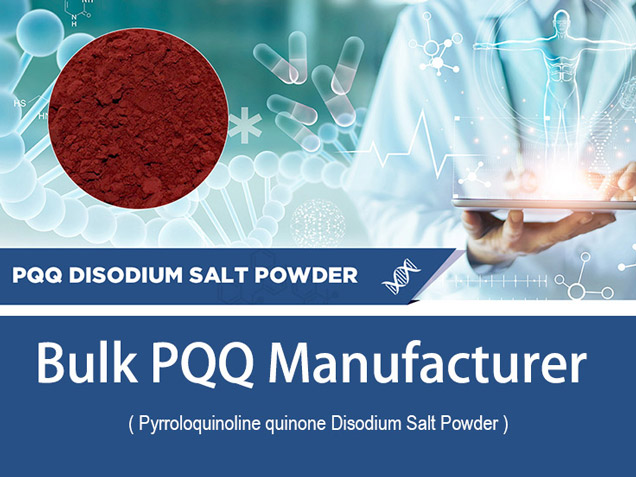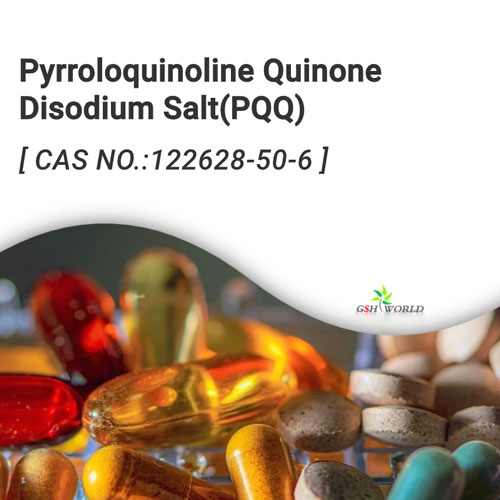Pyrroloquinoline Quinone (PQQ) has grown in popularity in recent years as a dietary supplement purported to offer health and wellness benefits.
As an essential micronutrient and enzyme cofactor involved in cellular energy production and mitochondrial function, PQQ has been associated with improved energy levels, cognitive function, and antioxidant potential.
However, questions remain regarding the safety profile of daily PQQ supplementation. This article reviews the available research to explore considerations around taking Pyrroloquinoline Quinone every day.
GSHWORLD
Understanding PQQ
PQQ is a compound that was first identified as a bacterial cofactor over 50 years ago. Found in small amounts in foods like natto, Pyrroloquinoline Quinone critical role in cellular health has become more appreciated in recent decades.
As an essential nutrient and potent antioxidant that supports mitochondrial function, PQQ supplementation has gained interest for purported benefits like improved mental clarity, memory and learning abilities, and cardiovascular function. While studies indicate promise, most research on PQQ remains preliminary and long-term trials are still needed.
PQQ is structurally unique compared to other antioxidant compounds. Its unique structure allows it to be highly efficient as an antioxidant in protecting cells against oxidative stress. Additionally, Pyrroloquinoline Quinone seems to have the capacity to stimulate growth of new mitochondria in cells, which may translate to increased cellular energy production.

More research is still needed to fully characterize the physiologic roles of PQQ. However, current data indicates that it likely functions as a vitamin-like essential nutrient that must be obtained from the diet.
The richest dietary sources of Pyrroloquinoline Quinone include natto, parsley, green tea, green peppers, and kiwi fruit, although the amount in most foods is relatively low. This has spurred interest in supplementation to obtain higher dietary intakes.
Reported Benefits And Research Findings
Early PQQ research in animal models identified apparent neuroprotective properties, sparking interest in PQQ supplementation for cognitive health. Small human trials found improved outcomes related to attention, information processing, and memory on cognitive tests after supplements containing 10-20 mg daily Pyrroloquinoline Quinone disodium salt for up to 12 weeks.
Additional small studies found faster processing speed and executive performance gains with 20 mg daily PQQ versus placebo over 12 weeks in 51- to 71-year-olds. However, a 2018 systematic review of 5 trials concluded larger robust trials are still needed to substantiate cognitive benefit claims for PQQ.
Beyond cognition, research indicates Pyrroloquinoline Quinone impacts cellular signaling pathways involved in inflammation, suggesting antioxidant and anti-inflammatory properties that protect against oxidative stress.
This has implications for mitigating age-related chronic disease risks long-term but clinical evidence is still extremely limited. An apparent role for PQQ in supporting insulin sensitivity and cardiovascular function are also emerging areas warranting further research.
While Many Of The Physiological Benefits Of Pyrroloquinoline Quinone Supplementation Need Further Research, Initial Findings Indicate It May Have Valuable Applications In:
Cognitive Function:
Small clinical trials show improved attention, memory, and information processing after PQQ supplementation. Its apparent ability to stimulate nerve growth provides a compelling mechanism of action for neurological benefits.
Neuroprotection And Anti-Aging:
Animal research reveals neuroprotective effects of Pyrroloquinoline Quinone that preserve cognitive function during aging. As a mitochondrial enhancer and anti-inflammatory/antioxidant agent, Pyrroloquinoline Quinone Powder also holds anti-aging promise that warrants human clinical trials.

Heart Health:
PQQ impacts molecular signaling pathways that reduce inflammation, oxidative stress, and insulin resistance – supporting improved cardiovascular function. Clinical studies are still needed but suggest cardioprotective potential.

Insulin Sensitivity And Metabolic Health:
By activating cellular pathways involved in mitochondrial biogenesis and antioxidant response, PQQ shows promise in helping maintain insulin sensitivity and supporting metabolic health. Human trials remain limited but will prove informative.
Immune Support And Antioxidant Protection:
Multiple studies reveal Pyrroloquinoline Quinone reduces oxidative stress and inflammation to protect against immune and DNA damage. While this suggests valuable support for immune function and antioxidant defense, direct clinical evidence is still lacking.
While mounting research continues to support the safety and health benefits of Pyrroloquinoline Quinone supplementation, larger-scale, placebo-controlled human trials focused on physiological mechanisms and long-term outcomes will further reveal its therapeutic efficacy. Consumer interest and supplement use will likely continue growing in parallel.
Safety Considerations & Dosage Guidelines
While tolerance data from earlier research supported acceptable safety up to 100 mg PQQ daily for moderate periods, little long-term safety data is available. As research progresses, several considerations around daily supplementation have emerged:
Typical PQQ supplement doses range from 10 to 50 mg daily. While higher doses have undergone shorter-term safety testing, little long-term data with consistent intake above 20 mg per day exists. Experts emphasize starting low then slowly increasing Pyrroloquinoline Quinone doses based on individual tolerance and supervision by your healthcare provider.
For context around dosing ranges, the estimated average dietary intake of Pyrroloquinoline Quinone for adults is around 1-2 mg per day. Supplemental doses of 10-20 mg thus provide 5 to 10 times the normal dietary intake, which multiple studies have indicated well-tolerated by most healthy individuals. However, conservative dosing still advised.
Potential Side Effects
Limited side effect concerns have emerged with supplements containing PQQ in recommended amounts, with mild fatigue, headaches or stomach upset occasionally reported. Individual sensitivity varies and can often resolve by adjusting the Pyrroloquinoline Quinone Powder dosage. Still, supervision recommended since long-term side effect data remains limited.
The lack of long-term human trials on consistent daily Pyrroloquinoline Quinone supplementation makes it impossible to rule out potential long-term ramifications. While no overt toxicity signals emerged from past higher-dose studies, these lasted weeks, not months or years. Some experts advise taking PQQ intermittently or cycling off it for antioxidant or other effects until more safety data accrues.
Little known on drug interactions with PQQ supplements; those on medications should exercise caution with Pyrroloquinoline Quinone due to potential contraindications. Consult your doctor and pharmacist about prescriptions, especially diabetes and blood pressure medications that may interact with Pyrroloquinoline Quinone mechanisms related to cellular signaling or vascular health. Individuals with gout history should also consult their physician before considering supplemental PQQ.

Since PQQ shares some similarity with other quinone compounds, some researchers hypothesize there could interactions with coagulation factors or certain chemotherapy drugs – but clinical study still needed. Additionally, impacts on mitochondrial respiration could theoretically intensify effects of certain muscle relaxants. However, research on these fronts extremely limited.
Individual Considerations
Those interested in PQQ supplementation should consider several individual factors around consistent daily use:
Personal Health Conditions
Your personal health history including medications, pre-existing conditions, prior side effects with supplements, or other individual factors should help guide decisions around daily PQQ use. Consulting your physician provides essential guidance.
Combination With Other Supplements
Little data examines contraindicated combinations between Pyrroloquinoline Quinone Powder and other common supplements like fish oils, probiotics, antioxidants or botanicals. Experts advise cautious combination use until more interaction safety research emerges.
However, some researchers speculate that other supplements known to support mitochondrial function – like CoQ10, acetyl-L-carnitine, or lipoic acid – could have additive benefits with PQQ. More study still needed around such mitochondrial “cocktails”.
Product Quality And Reliability
Seeking quality assurance details like third-party testing when selecting reputable PQQ supplement brands can help mitigate contaminant risks with daily use. Confirming purity and dosage accuracy supports overall safety.
With the growth in demand for PQQ supplements, many offerings now exist. However, quality can vary widely between brands and supplement forms (e.g. capsules, sublingual). Checking for verifiable quality testing and manufacturing details provides assurance with routine use.
Conclusion
Research continues to evolve around PQQ supplementation for purposes like supporting energy metabolism, antioxidant status and healthy aging. While data increasingly supports short-term safety within recommended dosing guidelines, many unknowns persist on long-term use spanning months or years.
By consulting healthcare teams, selecting high-quality products, adhering to conservative PQQ dosage ranges and remaining attentive to new clinical developments, consumers can make informed daily supplement decisions as research continues elucidating PQQ’s intriguing therapeutic potential within balanced supplementation routines.
